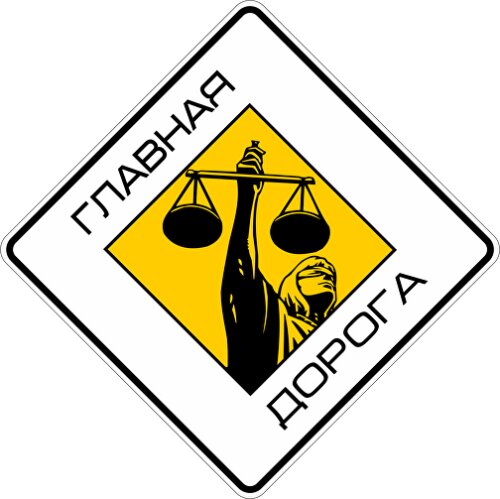Best Inheritance Law Lawyers in Yekaterinburg
Share your needs with us, get contacted by law firms.
Free. Takes 2 min.
List of the best lawyers in Yekaterinburg, Russia
1. About Inheritance Law in Yekaterinburg, Russia
Inheritance law in Russia is a federal area of law that governs how a deceased person’s property and liabilities are distributed. In Yekaterinburg, as the regional capital of Sverdlovsk Oblast, most inheritance dealings involve local notaries and regional courts for disputes. The rules cover both inheritance by will (testament) and inheritance by law, including the rights of spouses, children, and other close relatives. In practice, residents of Yekaterinburg often rely on local notaries for acceptance of inheritance and on regional courts for disputes that cannot be resolved through notarial action.
Key processes you may encounter include accepting or renouncing an inheritance, executing a will, determining the rightful heirs, valuing the estate, and transferring title to real estate or other assets. Because the procedures combine civil law, probate practice, and property registration, having clear guidance from a lawyer who understands Sverdlovsk Oblast procedures can reduce delay and avoid avoidable errors.
Two practical realities shape inheritance work in Yekaterinburg. First, the notarial office commonly handles the initial acceptance of inheritance when there are assets to pass to heirs. Second, most significant disputes about who inherits or how the estate is divided are resolved in court when there is a conflict or ambiguity in the will, or questions about the legal heirs and obligatory shares.
Source: Official legal information emphasizes that inheritance in Russia involves both testamentary and statutory distribution and often requires notarial acts in the estate transfer process. See the official texts on the Federal information portal: pravo.gov.ru.
2. Why You May Need a Lawyer
These concrete, real-world scenarios illustrate when a local inheritance attorney in Yekaterinburg can add value.
- Disputed will affecting close relatives: A Yekaterinburg resident discovers a will that excludes their immediate family. A lawyer can assess validity, challenge undue influence, and prepare evidence for a notary or court.
- Compulsory share concerns in multi-heir estates: If you believe a spouse, child, or parent did not receive the legally mandated compulsory portion, you need guidance on calculating and securing the obligatory share under Russian law.
- Estate with complex real estate in Sverdlovsk Oblast: When assets include multiple properties in Yekaterinburg or other cities, a lawyer helps coordinate title transfers, mortgage resolutions, and cadastral updates with Rosreestr.
- Renunciation or acceptance decisions: If you inherit a debt-laden estate, a lawyer can help decide whether to accept with the right of accession or to renounce, keeping liabilities manageable.
- Notarial act delays or errors: If a will or inheritance acceptance requires a notary, a local attorney ensures documents are complete, properly executed, and filed on time to avoid delays.
- Estate administration for executors or administrators: An administrator or executor needs to satisfy creditors and heirs while preserving the estate value, which a lawyer can coordinate.
In each scenario, working with a Yekaterinburg attorney who understands local court calendars, notary offices, and property registration requirements can shorten timelines and prevent costly missteps.
3. Local Laws Overview
Two to three core laws and regulations govern inheritance practice in Yekaterinburg, reflecting the federal framework and regional implementation. The following are essential references for anyone navigating an inheritance matter in Sverdlovsk Oblast.
- Civil Code of the Russian Federation, Part III - The primary law governing inheritance rights, testamentary dispositions, and the distribution of an estate by will or by law. It outlines heirs, obligatory shares, and the basic mechanics of accepting and renouncing inheritance.
- Civil Procedure Code of the Russian Federation - Governs how inheritance disputes are resolved in courts, including procedural timelines, evidence rules, and appeal processes. It is the backbone for any litigation arising from inheritance matters.
- Federal Law On Notaries - Regulates notarial acts involved in the inheritance process, including accepting an inheritance, certifying wills, and recording title transfers and other estate documents.
In practice, Yekaterinburg heirs often work through notaries for straightforward acceptances and through regional courts for contested outcomes. The combination of these laws shapes how quickly and smoothly an inheritance case moves from death to final distribution of assets.
Source: Official texts outline that inheritance matters rely on the Civil Code, the Civil Procedure Code, and notary regulation. For authoritative versions, see the official legal information portal: pravo.gov.ru.
Source: The notarial framework is described in federal law on notaries, with authorities located in federal and regional offices. See the same official portal for current text: pravo.gov.ru.
4. Frequently Asked Questions
What is the basic idea of inheritance in Russia?
Inheritance in Russia transfers property and liabilities from a deceased person to surviving heirs. It can occur through a will or by law, and can involve notarial actions or court proceedings depending on the case.
How do I start the process after a death in Yekaterinburg?
Gather death certificate, any will, identified heirs, property titles, and debt information. Visit a local notary to open the succession case or determine if court intervention is required.
When must I accept inheritance to avoid losing rights?
The acceptance deadline varies by case, but typical timeframes begin from the date of death or discovery of the estate. A lawyer can confirm precise deadlines for your situation.
Where do I register inheritance and open a case in Yekaterinburg?
Most straightforward cases proceed at a local notary in Yekaterinburg. If disputes arise, cases may be filed in Sverdlovsk Oblast courts with a lawyer guiding filings and evidence.
Why would I need a lawyer for an inheritance dispute?
A lawyer helps interpret the will, identify rightful heirs, assess obligatory shares, manage complex property transfers, and navigate court or notary procedures efficiently.
Can I renounce inheritance and how?
Yes, renunciation is possible and must be done in a legally prescribed form through a notary or court. A lawyer can ensure the renunciation is effective and properly recorded.
Should I get a will drawn up if I own assets in Yekaterinburg?
Yes. A clear will reduces disputes and clarifies your wishes for asset distribution, dividends, and guardianship. A lawyer can help prepare a legally valid will.
Do I need to prove kinship to receive the compulsory share?
Yes. The compulsory share is reserved for close relatives, and proving kinship is often essential to receiving it. A lawyer can guide the documentary requirements.
Is there a difference between inheriting by will and by law?
Yes. A will allows specific distributions by the deceased, whereas inheritance by law follows a statutory order of heirs when there is no valid will.
How much does an inheritance attorney cost in Yekaterinburg?
Costs vary by case complexity, but typical fees cover consultations, document drafting, and court or notary proceedings. Ask for a written estimate before engagement.
How long does the inheritance process usually take around Sverdlovsk Oblast?
Simple cases with clear titles may settle in a few weeks, while contested estates can take several months to over a year, depending on court schedules and the estate size.
Do I need to prove kinship for a compulsory share?
Proving kinship may be required to establish eligibility for a compulsory share and to determine rightful heirs under the law.
What are the taxes on inheritance in Russia?
Historically, Russia eliminated personal inheritance tax for many close relatives; however, related taxes or fees may apply in specific circumstances, such as real estate registration fees or capital gains on disposed assets.
5. Additional Resources
Here are official resources you can consult for more information on inheritance law and related procedures in Russia and Sverdlovsk Oblast. Use these as starting points for official guidance and forms.
- Official Portal of Legal Information - Access current federal laws, including the Civil Code and Civil Procedure Code. Website: pravo.gov.ru
- Ministry of Justice of the Russian Federation - Provides oversight of notaries and civil status acts; guidance on admissible forms and local offices. Website: minjust.gov.ru
- Federal Tax Service - Guidance on tax implications related to estates, if applicable, and official notices. Website: www.nalog.ru
Note: Notaries and court processes in Yekaterinburg rely on federal law and local court schedules. For concrete forms and procedural instructions, consult the official portal and your local legal counsel.
Source: Official legal portals caution that inheritance matters involve both testamentary documents and statutory distributions with notarial and court steps. See pravo.gov.ru for authoritative texts.
6. Next Steps
- Identify the type of case you face by listing assets and potential heirs. Do this within 1 week of learning about the death.
- Collect essential documents: death certificate, will (if any), property deeds, and debt statements. Organize these in a folder for your lawyer.
- Consult a local inheritance lawyer in Yekaterinburg to review the estate and outline a plan. Schedule a 60-minute initial consultation within 2 weeks.
- Decide whether to pursue acceptance of the inheritance through a notary or to initiate court proceedings. Your attorney can help weigh the options within 2-4 weeks.
- File necessary documents with the notary or court, and prepare a detailed inventory of assets and liabilities. Expect a 4-8 week processing window depending on complexity.
- Coordinate with Rosreestr for real estate transfers and with any mortgage lenders. Plan for 2-6 weeks of coordination after notarization or court decision.
- Finalize registration of title and distribute assets to heirs per the decision or will. Allow an additional 2-8 weeks for registration and fee settlement.
Lawzana helps you find the best lawyers and law firms in Yekaterinburg through a curated and pre-screened list of qualified legal professionals. Our platform offers rankings and detailed profiles of attorneys and law firms, allowing you to compare based on practice areas, including Inheritance Law, experience, and client feedback.
Each profile includes a description of the firm's areas of practice, client reviews, team members and partners, year of establishment, spoken languages, office locations, contact information, social media presence, and any published articles or resources. Most firms on our platform speak English and are experienced in both local and international legal matters.
Get a quote from top-rated law firms in Yekaterinburg, Russia — quickly, securely, and without unnecessary hassle.
Disclaimer:
The information provided on this page is for general informational purposes only and does not constitute legal advice. While we strive to ensure the accuracy and relevance of the content, legal information may change over time, and interpretations of the law can vary. You should always consult with a qualified legal professional for advice specific to your situation.
We disclaim all liability for actions taken or not taken based on the content of this page. If you believe any information is incorrect or outdated, please contact us, and we will review and update it where appropriate.










